SYNNECTA Blogs
For more than two decades, we have been publishing articles about our work with people in companies and organizations on our website. Feel free to browse through our archive, where you will find many publications on a wide variety of topics.
We are currently reorganizing the archive together with our new website. All articles will gradually be available again.
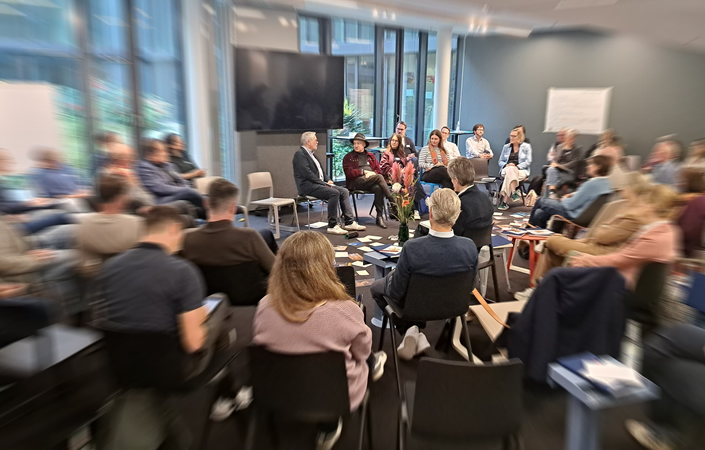
Coaching 2025 – Movement, Change and New Perspectives
1. The Coaching Landscape in Transition The coaching scene is in flux. New methods and certifications are constantly emerging. In addition to established psychotherapeutic approaches and business-oriented career coaching, the industry is increasingly integrating...

Leadership meets art – beyond tools and tricks
We meet in the entrance hall of the Museum of Art Pudong in Shanghai. We are a group of Chinese executives and consultants from SYNNECTA China. Our topic: Make my organization dance.

A beginning – We have a lot to say
A trend or a return to the old hierarchical world? There are already the first posts on social media positioning themselves against »wokeness«. Sometimes with an attack on the »soft« fashions in the people departments and and the so-called soft consultancies.

Culture and strategy. Do we have to choose one over the other?
Black and white. Good and evil. Anima and animus. Emotional and rational. Social and personal. Is life made of dualities? Strategy and culture are one of these dualities we often encounter business-wise. Are we talking about opposing forces?

We need new value processes
Almost all companies have, now quite some time ago, dealt with their values, often writing them down and distributing them throughout the company. A significant source was often the memory of the founders’ »philosophy« and their words, often late words.
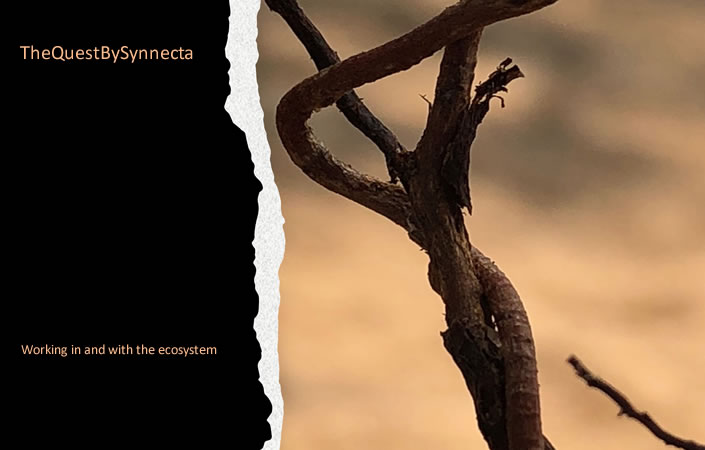
TheQuestBySynnecta – What are we for?
People in organizations expect a credible answer to this question in order to be able to establish a context for their work that delivers a sense of both purpose and meaning. Reacting to such challenges, companies position themselves with a company purpose. Until now,...
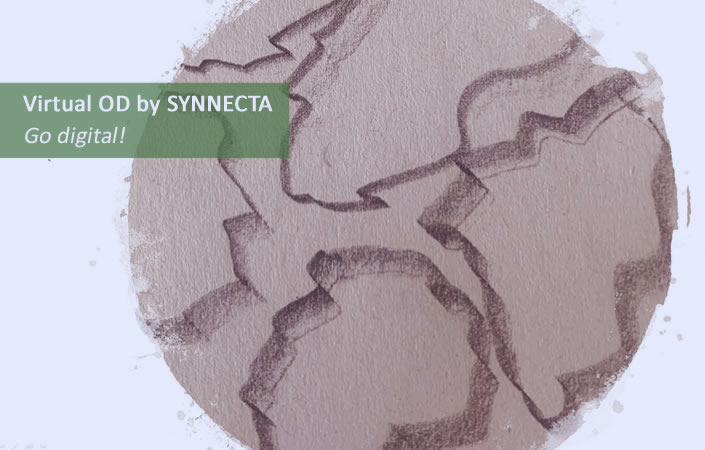
Virtual OD by SYNNECTA – Go digital!
The digital world is a great source of new potential for organizations to foster a cultural change that is more democratic and more tuned into the future in order to address the challenges of an increasingly complex and dynamic world. In future, culture will be even more important in organizations.

The Dynamics of Shaping Identities
It is a well-known challenge: how can an organization gain and maintain a recognizable identity that gives direction to the conduct of its entire team? The history of large companies is usually shaped by mergers. Surprisingly, we often find deep-rooted and dominant origins identities there.

Some Thoughts about Mindset: a trending term
How we see the world, and what we know about it, is shaped by what has gone before: it is conditional. The notion that our perception and understanding creates an image of the world has long been doubted. At least since the time of Kant, we have known that …

Companies as urban infrastructure
We live in a society in which individuality and diversity are constantly growing. This also brings together a wide variety of identities, lifestyles and values. In urban infrastructures, we experience both the richness and the susceptibility to conflict of this situation.

Spectrum of Balance – A cultural model for organizations
The cultural model »Spectrum of Balance« was developed by SYNNECTA in co-creation with partners at other companies. It gives culture a language and thus people in organizations a basis for reflection and discussion. The model is descriptive and not normative.

The Rich Conversations Model – A short guide to establishing and deepening online interaction
As seven strangers attempt to scrutinize each other’s faces over a limited internet bandwidth, it becomes clear once again how unskilled we are at compensating for the challenges of online communication.

Respect for the stranger
These are reflexive processes that enable us to expand both our understanding of ourselves and our understanding of the world. Diversity, with the right of diverse people to speak and be heard, is an accelerator of reflexive self-assurance and world assurance, and thus the basis of innovative strength and competitiveness.

The empathetic manager – digital?
Empathy is not a separate perception ability; rather, it is the ability to interpret analogue communication expressions and thus also understand the emotional message in the midst of busy factual information. This requires interaction. The open spaces for interaction, as realised in the new office concepts …

Paranesis? Come again?
For us as coaches, what is referred to in ancient philosophy and later in Christian teachings as parenesis comes into play here: encouraging, admonishing and comforting words of reassurance. And that is our task at present – to help people find their own serenity, to give them the stability they need for a time to find their own again.
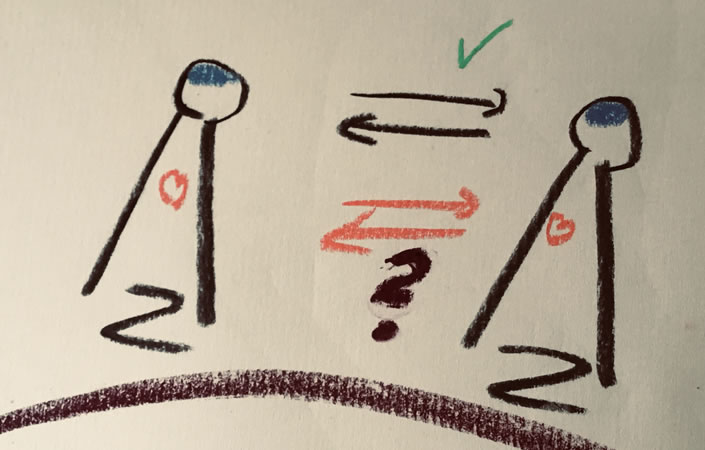
Something is missing – Experiences with non-analogue workshops
Time brings us the chance to have increased experiences with non-analogue workshops using different digital tools. We see the value in this form of collaborative working whenever we have to exchange facts and figures, whenever we have to inform and to get feedback

Cultural work in organizations is work on the collective mindset
Radical collaboration, transformation, new ways of thinking, digitalization – there is hardly a topic that is not moved and supported by mindset work. What is striking is that it is always about the mindset work of the individual employee.

Crisis Communication III
Few remarks on the announcement of the bad news. It is an event that captures the attention of the managers involved. Although it is only one step in a longer process, it is the central event because it sets the tone for the whole following process: the official first announcement.

Crisis Communication II
The dilemma of local leadership or A deep conflict of loyalties. There’s the decision. Costs have to be reduced, a reduction in staff is pending, perhaps the closure of a site or the sale of part of the company. The local management has the task of implementing the decision.
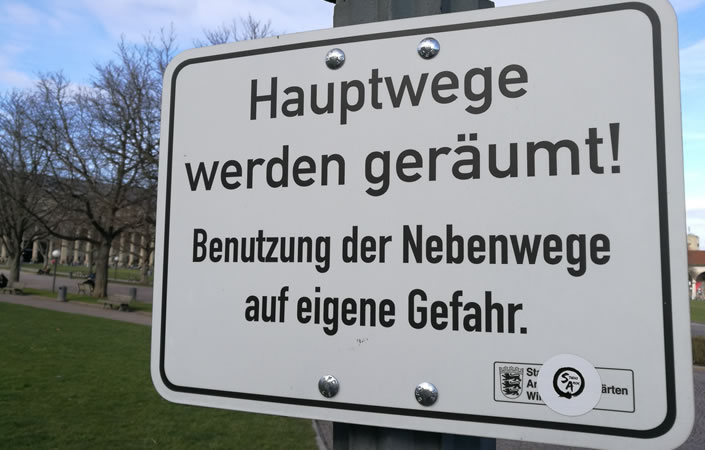
Crisis Communication I
Transparency makes credible – the need for honest leadership. It is a classic starting situation: A general manager, a plant manager, a divisional manager is informed that significant redundancies are imminent in his area, that a site is to be closed or an entire business unit sold.

A new role in radically self-organized leadership development
In the current issue of managerSeminare, Petra Martin describes the format of an agile leadership development programme at Bosch Automotive Electronics, which radically focuses on the self-organisation skills of the participating managers, in a vividly illustrated...

The political dynamics of organizational development
Politics as a driving force in companies – a topic that companies generally reject. They accept concepts of micro-politics that focus more on careers and more or less describe the structure of influence in networks.

Education/Training
There is now a lot of talk about education, political education, education in general and leadership development in particular. However, if you look at the educational landscape of companies, there is little education to be found. What is to be found is rather …

Sprint Workshops: an agile alternative to traditional team workshops
As organizations are growing increasingly sensitive to agility, we gain new ground for experiments. This blog text will introduce a sprint workshop format, which has evolved from such an experiment and has yielded good results in several projects. I developed the...

Cultural sensitivity allows a more effective Change Management: organizational culture as a field of discourses in tension
Cultural anthropologists have addressed the cultural aspects of organizations and companies since the 1920s, beginning with the Hawthorne Experiments. Now, economists and management have come to recognize …

Change Management? It does exist. Yet: What form does it take?
A lot of research has gone into the dynamics of Change projects and successful ways of providing support for the attainment of goals over the course of the last decades. Almost all research stresses that Change processes must be embedded in a concept …

Mission Statements in Times of hybrid Societies
Since the turn of the millennium, a mission statement should be part of every corporate identity. If you don’t have one, you shouldn’t wait any longer and get one! Why? Because they provide an orientation in times of globalization and of fall in value, where...
